Are Millets Safe for Daily Consumption? What You Need to Know

Metabolic Wellness | Ayur Ai
Dr.Harinee S, B.A.M.S., M.D.(Ayu.)
Updated on AUG 24,2023
Ever thought about the hype surrounding millets and whether they're a good fit for your daily diet? In this article, the goal is to explore the facts about these nutritious grains. Let's dive in and answer the burning question: Is it okay to have millets every day?
"Exploring Millets and Ayurveda"
Millets, commonly recognized as grains packed with nutrition, have been causing a sensation in the realm of health and well-being. But did you know that Ayurveda, the ancient Indian system of medicine, offers insights into their consumption? Ayurveda classifies millets as "Kudhanya," which translates to "Grain of inferior kind" and they have the potential to disrupt the body's balance (Doshas) if taken on regular basis.
Approaching Millet Consumption Wisely
So, can you enjoy millets without compromising your digestive well-being? Absolutely! Here are some practical tips to ensure you reap the benefits of millets without overburdening your system

Choose unpolished varieties

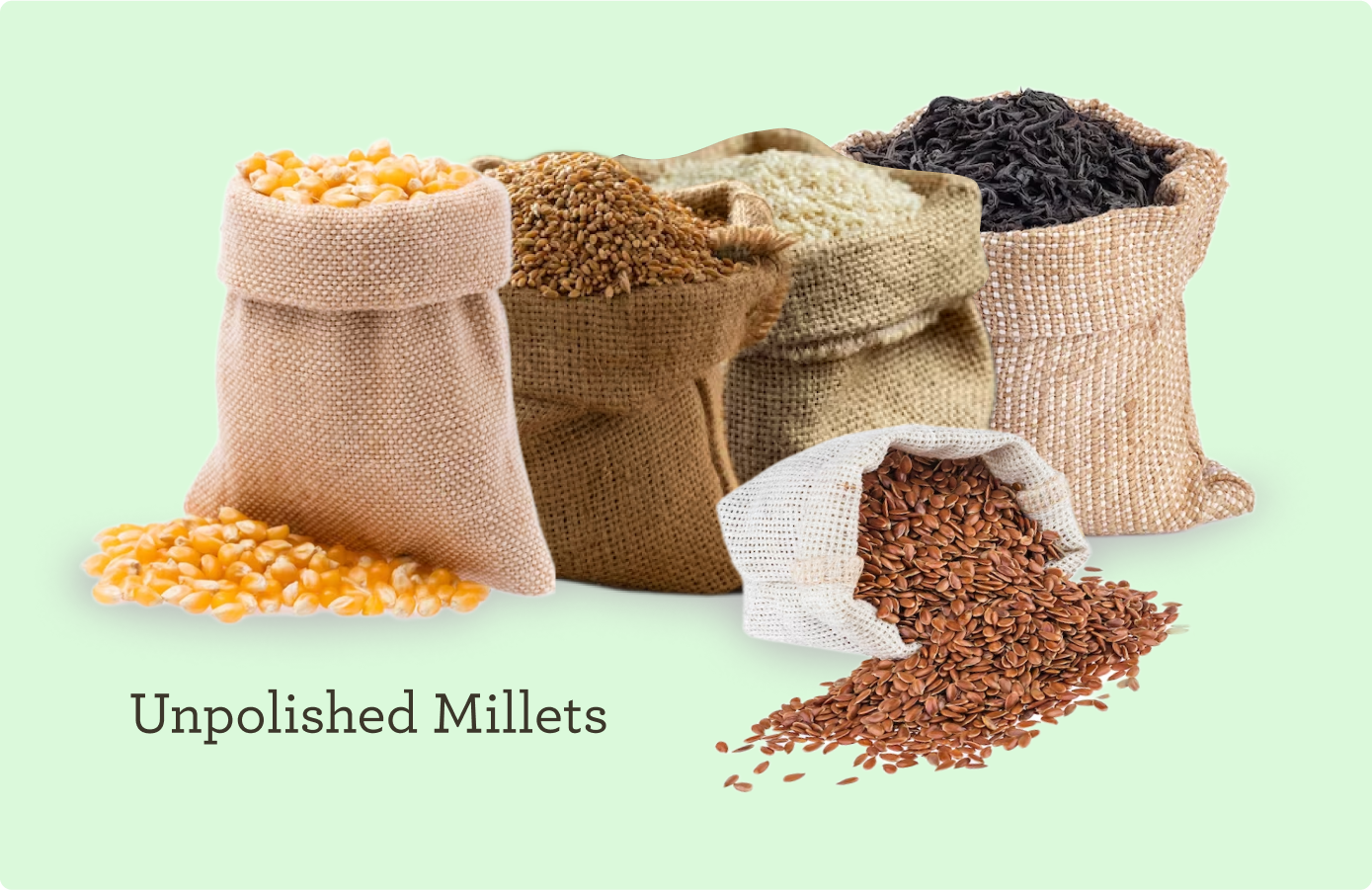
To get the maximum nutritional value, opt for the unpolished variety of millets when you shop. When millets are polished, the bran layer is removed, resulting in a significant loss of nutrients.

Soak Millets before Cooking

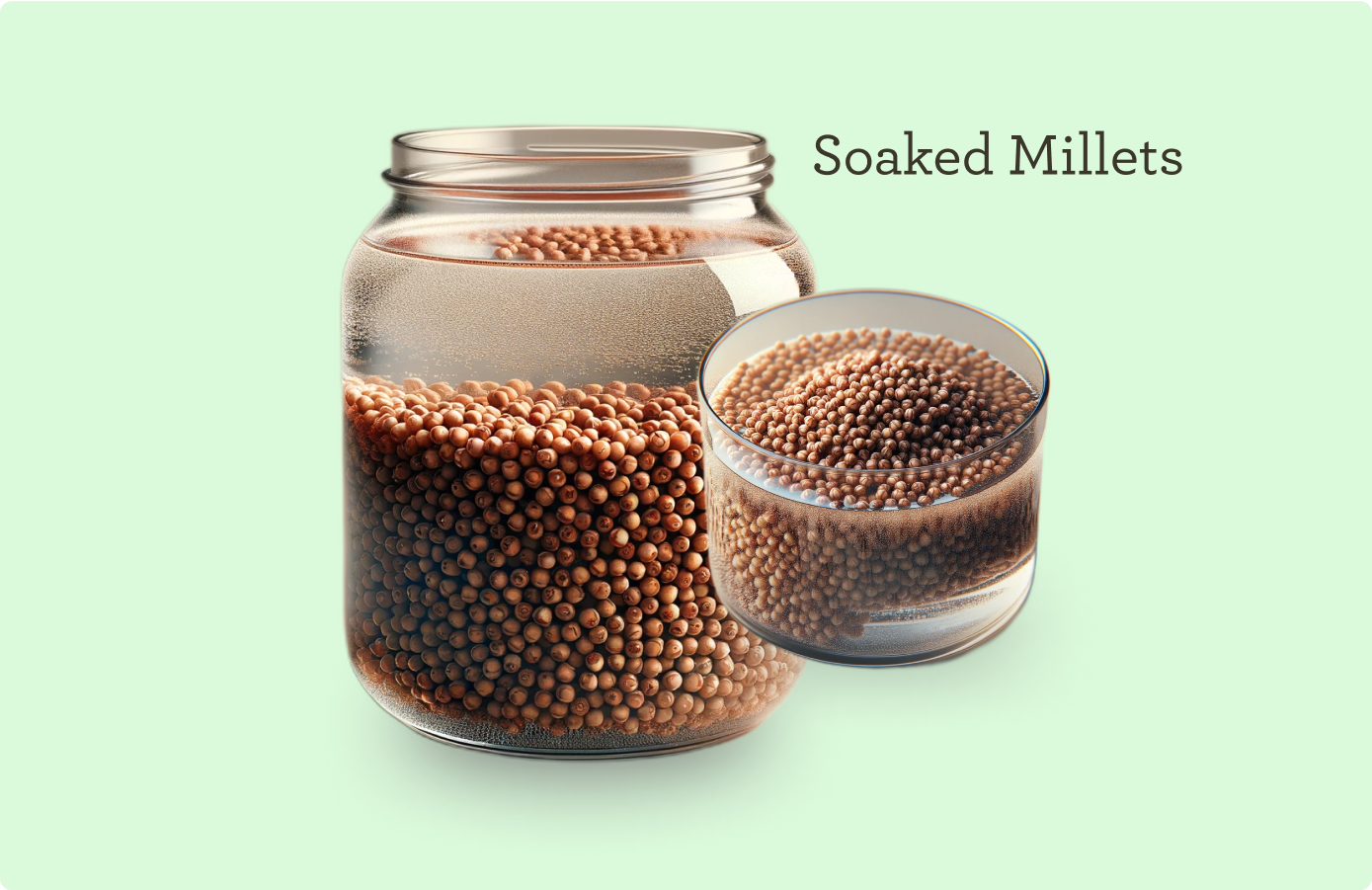
A simple Pre-cooking step, soaking millets in warm water overnight, around 6 to 8 hours, reduces the Anti-nutrients content, in particular, “Phytic acid” within them, boosts Mineral absorption (Vital nutrients such as protein, iron, zinc, and calcium), and enhances protein digestion.

One Millet at a Time: Listen to Your Body's Feedback

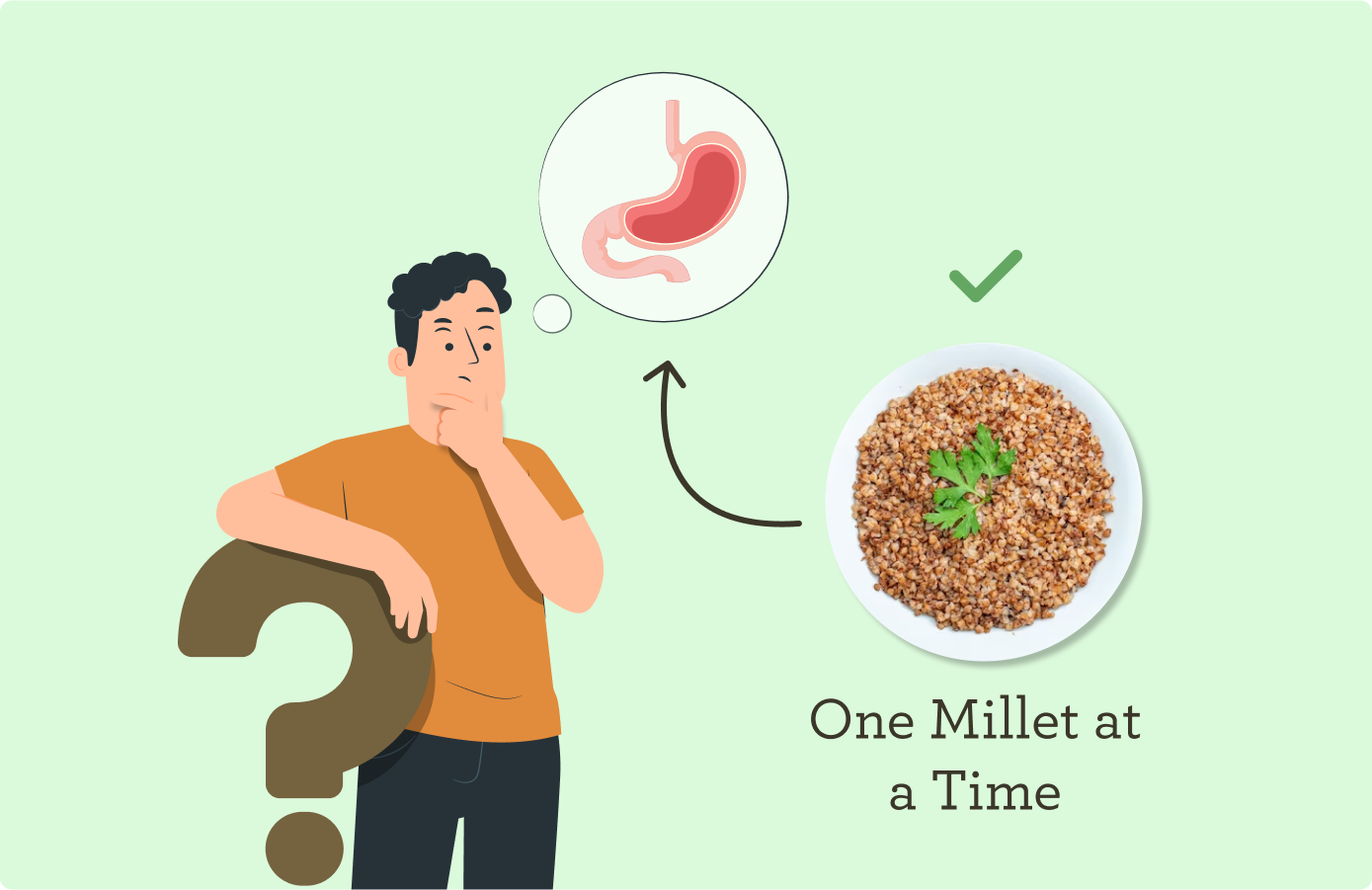
If you're new to millets, begin by using just one type of millet in your main meal. While millets offer exceptional nutritional value, their suitability depends on how well your body can process them. It's not just about eating healthy; it's about what your body can effectively absorb.

Avoid mixing different millets in one meal

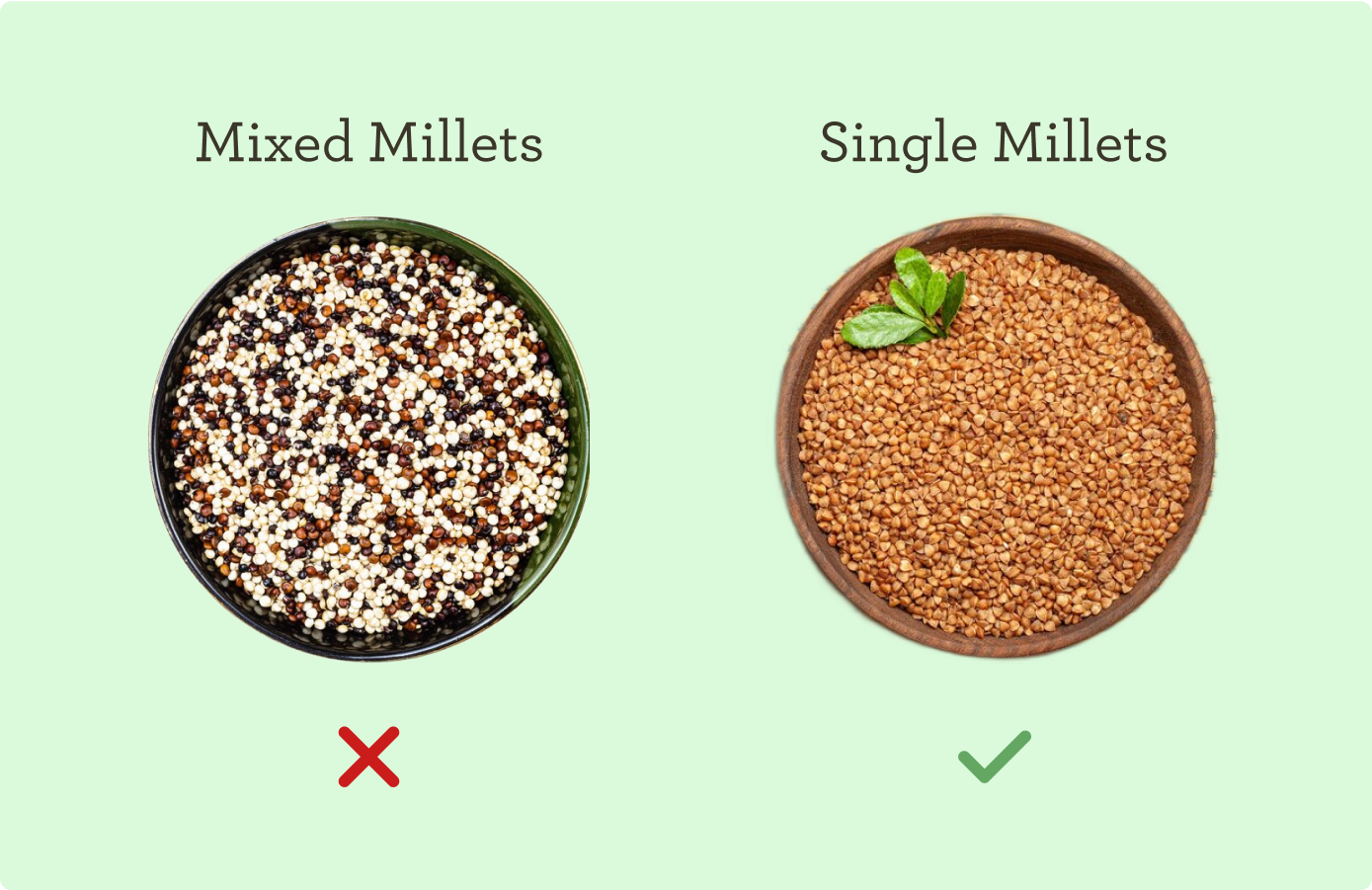
Generally, it's recommended to avoid mixing millets erratically (such as Multigrain) in one meal as each millet possess different properties. Also, high fibre content and slow digestibility may end up in Gut-related issues such as bloating, indigestion etc

Avoid Millet-only diet

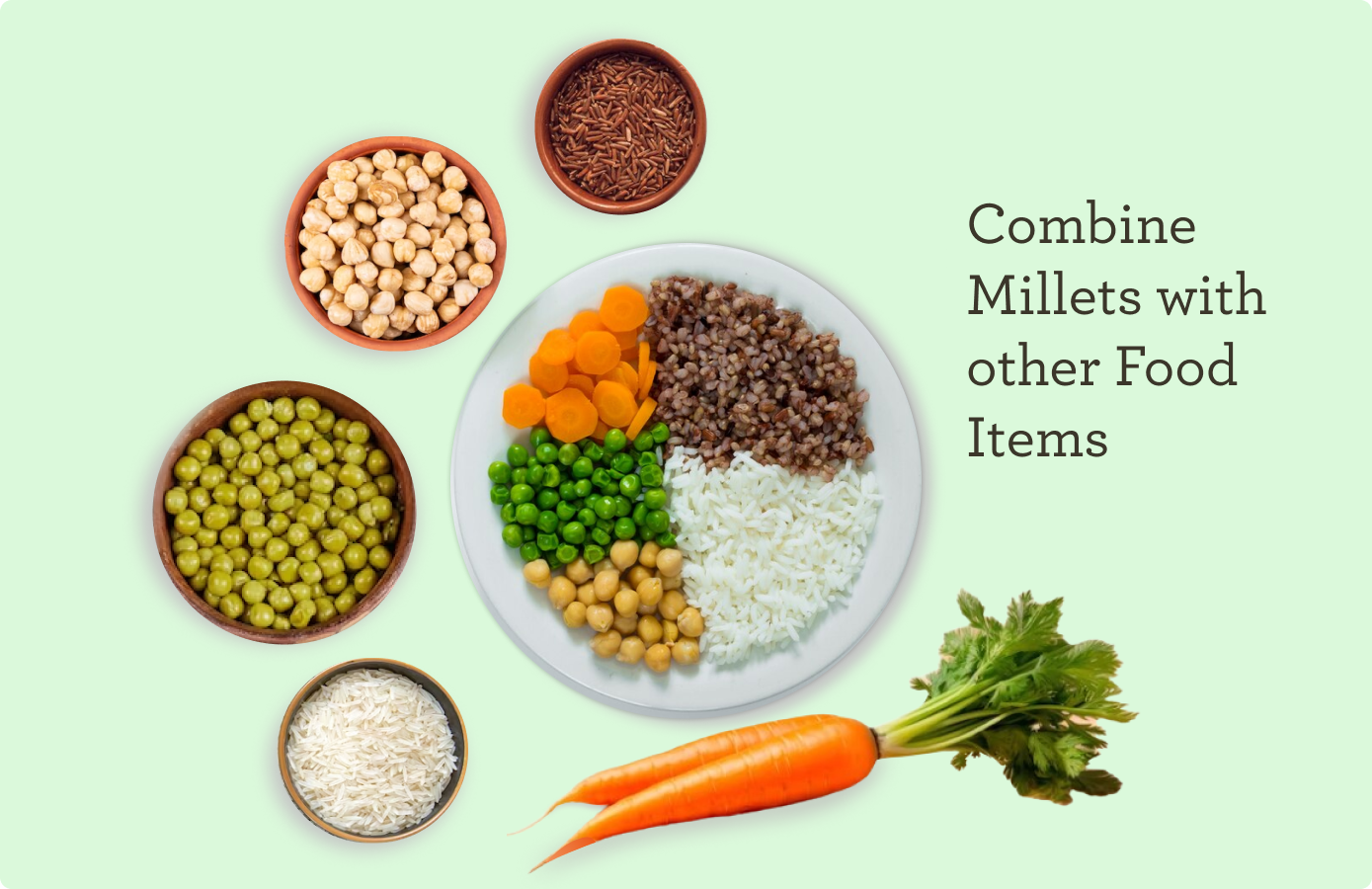
Just like with any nutritious food, moderation is the key when it comes to millets. Millet-only diet is still not advisable, as studies have shown that they contain high levels of oxalic acid, causing disorders such as gout, kidney stones, etc. Also, they disrupt the production of thyroid hormones. Remember, millets can't replace staples like rice and wheat, which should still be a part of your diet.




